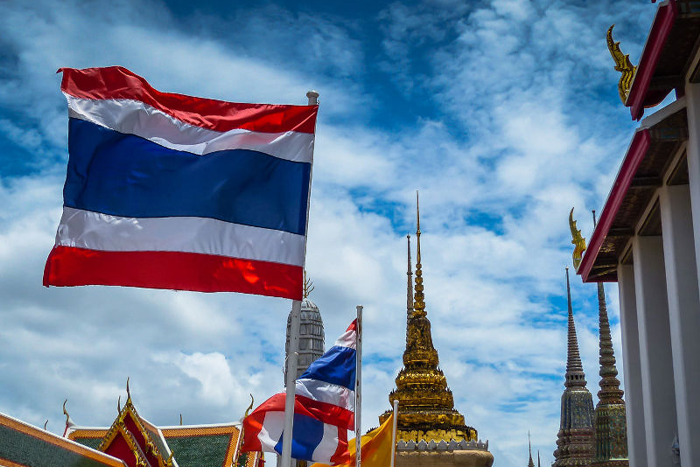April 2018 |
Going into the General Election, almost all polls show that the Barisan Nasional (BN), led by the United Malays National Organisation (UMNO) and incumbent Prime Minister Najib Razak, will win. But polls notoriously predicted that Hillary Clinton, not Donald Trump, would win the American Presidency, and that the United Kingdom would not vote to exit the European Union. In these tumultuous times, black swan events are possibilities that cannot be ignored.
Looking at Malaysia, what if the country’s 14th General Election (GE14) results in either a hung parliament or an opposition victory? This unlikely but troubling scenario is not something to be written publicly. But given the importance of Malaysia to Singapore, we are writing to share our views on a confidential basis with you as our member and friend. May I share with the following points with you, briefly:
1. Efforts to Avoid the Black Swan: Everything is being done to tilt BN’s chances towards victory. After redrawing electoral boundaries, BN reportedly only needs 33 percent of the popular vote to clinch a simple majority in parliament. There has also been a five to six-fold increase in the number of registered postal voters, which fuels potential vote rigging to benefit BN. Should BN win, there will be allegations of vote rigging and an unfair outcome. Yet the Opposition (Pakatan Harapan or PH) is perceptibly weaker than in the last election. This is especially with the departure of Parti Islam Se-Malaysia (PAS) from the coalition that introduces potential three-way contests for rural Malay constituencies.
2. The Fight for Rural Malay Votes: Most identify the main battleground as the fight to attract rural Malay votes. The rural economy has not been doing well so aid programs such as Bantuan Rakyat 1 Malaysia (BR1M) have given hand-outs to rural voters. Efforts have also been to clean up corruption scandals surrounding the Federal Land Development Authority (FELDA) and pacify angry FELDA settlers. PH’s appeal to rural Malay voters hinges upon former Prime Minister Dr Mahathir Mohamad and the coalition has made some efforts to capitalise on nostalgia for his time in office, particularly in his home state of Kedah. It is unlikely that PH will win enough rural Malay votes to deliver an electoral upset, but the notion is not impossible. Moreover, the effort to win rural Malay votes can also translate into a greater emphasis on issues of race and economic equality.
3. Risks from 1MDB and Corruption: Polls show most voters worry more about the economic prospects than the corruption scandals surrounding 1Malaysia Development Berhad (1MDB) and FELDA. But in the black swan event of a PH victory, PM Najib may face the threat of prosecution. This personal stake is vivid and some believe that emergency rule may be considered if voting trends move against BN. In the past, emergency rule could only be declared with the consent of the king. However, since 2016, the National Security Council (NSC) Act empowers council members, which include PM Najib and other cabinet members, to declare security areas for up to six months. The support of the Armed Forces will be needed and, notably and not without controversy, Armed Forces Chief General Raja Mohamed Affandi Raja Mohamed Noor recently urged his soldiers and police to be grateful and loyal to PM Najib’s government.
4. Risks of Ethnic Flare-Ups: As GE14 will revolve around attracting Malay votes, both sides have endeavoured to portray themselves as defenders of Malay interests (with PAS specifically campaigning for Muslim rights). PH has gained some Malay support from having Dr Mahathir as their Prime Ministerial Candidate, but many Malays still see the Democratic Action Party (DAP) as a “Chinese party”. While the DAP is maintaining a low profile by contesting only 35 state seats, BN has vilified PH as a coalition which is covertly controlled by Chinese interests. In the aftermath of the last GE, a “Chinese tsunami” was blamed for BN’s poor showing. In December 2017, the UMNO General Assembly was warned that a PH win would cause Muslim Malays to become “homeless and despised within their own country”. In recent months, Chinese Malaysians have been invoked as political bogeymen, especially when one considers the spat between Robert Kuok and BN over the former’s alleged financing of the DAP. If results narrow between BN and PH, there is a distinct possibility that ethnic violence may occur. This could be spontaneous or spurred by agent provocateurs. Such an outbreak of violence may also be used to rationalise the imposition of emergency rule under the NSC Act. Potentially, this would take Malaysia into territory not seen since the events of 1969.
For GE14, polls do assure us that a BN victory is on the cards. The scenario of an Opposition victory remains unlikely. But there is an outside risk that the margin may be narrower than BN hopes for and that nerves may be frayed if voting patterns go against the BN. What I outline above is neither a prediction nor, I would emphasize, a desired outcome. Few countries matter as much to us as Malaysia and therefore the hope remains for stability allied (ideally) with a commitment to rational cooperation and reform. These points I raise here try to answer a “What if” question and I hope this is of interest to you. I would be happy to hear your views.
Yours sincerely,
Simon Tay
Chairman
![[Premium] Chairman’s Note (02/2018) – Malaysian General Election and Possible Scenarios Following Any “Black Swan” Outcome](https://siiaonline.org/wp-content/uploads/2018/04/kuala-lumpur-petronas-twin-towers-malaysia-klcc-67559.jpeg)



